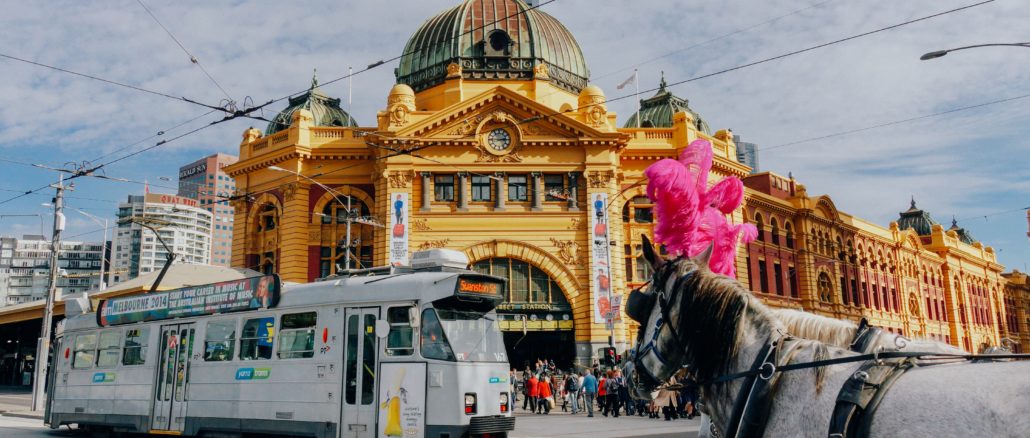
We live in an uncertain world where crises are inevitable. In the recent past, Australians have suffered an estimated $2+ billion worth of damage from bushfires. We lost somewhere around 2,000 homes, 26+ human lives and an estimated 1.25 billion of our precious animals in the recent fires.
As if that weren’t bad enough, experts predict that more catastrophes might still lie ahead of us. Future possible crises might include global pandemics; more natural disasters; and even a global economic Armageddon. Recently, the chairwoman of the International Monetary Fund (IMF), Kristalina Georgieva, went on the record to warn world citizens that we’re at risk for another great depression. She believes the coming decade is likely to be characterised by financial market volatility and social unrest.
There’s also the ongoing possibility of individual personal crises such as an unexpected redundancy.
The following are just a few of the things Melbournians can do to prepare for an unknown crisis:
Secure Your Home
Securing your home is one of the most critical steps you can take to prepare for a possible crisis:
Discourage Break-Ins: There are many ways to discourage burglars from breaking into your home. Install exterior security doors. Ensure your home can be locked securely with hefty deadbolt locks.
Guard Against Fire: If you have fire extinguishers at home, make sure they are up-to-date and functioning correctly. Evaluate their location to ensure you could actually reach them in the event of a fire. If you don’t have fire extinguishers, get some.
Reduce fire risks in your yard and garden areas. Prioritise cutting the grass, pruning shrubs and trees and removing or composting all the old, dead leaves that may have accumulated. Create your home’s landscaping with gravel rather than wood chips.
Flood-Proof Valuables and Important Documents: Some areas in and around Melbourne have a history of flooding. If you live in a known flood zone, it’s worth taking precautions to protect your property from water damage. Know how to contact your local floodplain management authorities. Store your phone, laptop and other electronics in Pelican dry boxes or similar waterproof cases. Backup all your important documents and store copies in the cloud. Keep marine drybags and an assortment of plastic bags on hand for storing other things that need to stay dry.
Acquire Practical Skills
In times of crisis, it is possible that local hospitals could get too overwhelmed to properly care for everyone who might need medical attention. For this reason, disaster preparedness experts recommend taking a first aid course and learning how to administer CPR. If this is of interest to you, you have many options for first aid courses in Melbourne.
It could also be worthwhile to learn all you can about bush medicine. There are a couple of reasons for this. For starters, medication shortages have been an ongoing issue in Australia even before the coronavirus became a global threat. And, secondly, medicines based on commonly available herbs cannot easily be patented, which makes herbal medicines affordable to keep on hand for emergency preparedness.
Australia imports some medications and the ingredients to make others. Pharmaceutical companies aren’t typically forthcoming about where they are sourcing their medications; but, presumably, some of these imports come from China. Chinese manufacturing has slowed down considerably because of the coronavirus, and some parts of the world are already experiencing medication shortages. We’re at risk for further shortages in the future. Bush medicine could potentially help to fill in the gaps.
Invest in Tangible Assets
If an economic crisis is looming in the future, nobody knows whether it will be an inflationary event or a deflationary one. It’s also possible to have both inflation and deflation simultaneously, because there are cases when non-essential assets like yachts can deflate in value while costs soar for essentials like food, energy and medicine. It’s also conceivable that there could be a deflationary event followed by an over-correction that leads to hyperinflation.
These variables make it challenging to prepare for all possibilities. If it’s a deflationary event, holding cash will be essential. If it’s an inflationary event, the value of cash will erode quickly, and holding tangible assets will be preferable. If possible, it’s ideal to make sure you have both cash and tangible assets on hand.
Precious Metals: One possible scenario, according to Australian economist John Adams, is that the Federal Government and the Reserve Bank of Australia (RBA) might resort to significantly inflating the supply of Australian money and credit through quantitative easing. If this were to happen, it could potentially end up leading to a dramatic loss of the Australian dollar’s purchasing power. To safeguard against this, he recommends that Australians give some thought to holding tangible assets such as precious metals.
Food and Water: With natural disasters and pandemics both being possibilities, it is prudent to stock up on food and water. In light of the long 14-day incubation period for the coronavirus, you could consider stocking at least a 14-day supply of food, water and other essentials in case you need it in the immediate future.
Garden Seeds: Authorities have created a doomsday seed vault to preserve the world’s biodiverse plant life – but, you and your family won’t personally have access to this seed vault in an emergency. So it could be worthwhile to save some of your own seeds if you’d like to ensure your family’s future food security.
It is impossible to be 100 percent prepared for any crisis life might send your way. However, taking the above steps can help you to be better prepared for the likeliest types of crisis you might encounter in Melbourne, Australia.
SheSociety is a site for the women of Australia to share our stories, our experiences, shared learnings and opportunities to connect.

Leave a Reply